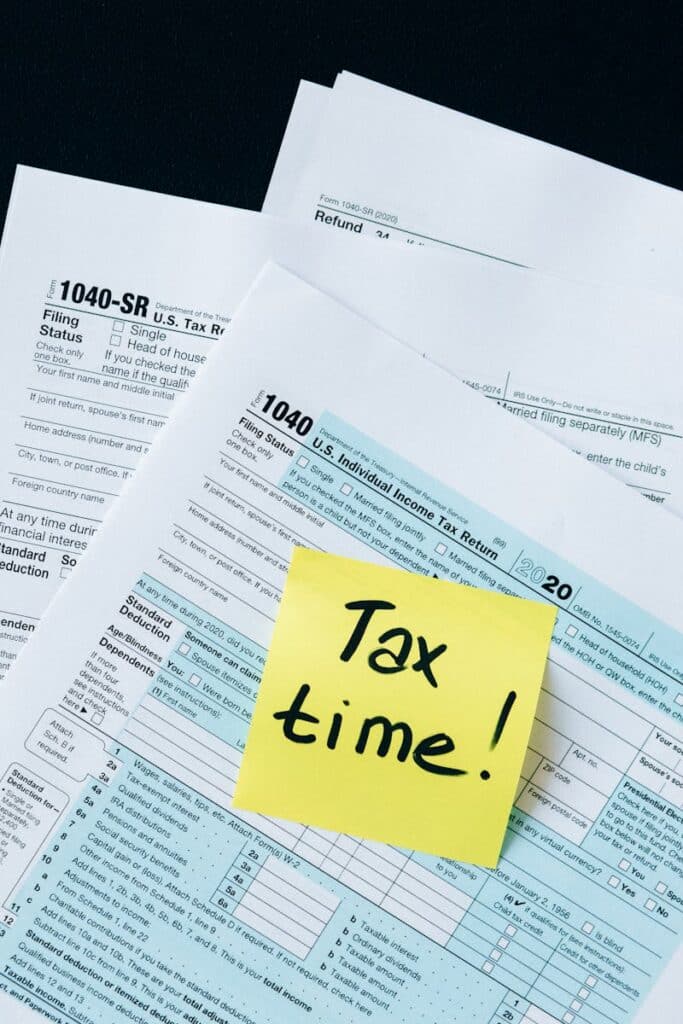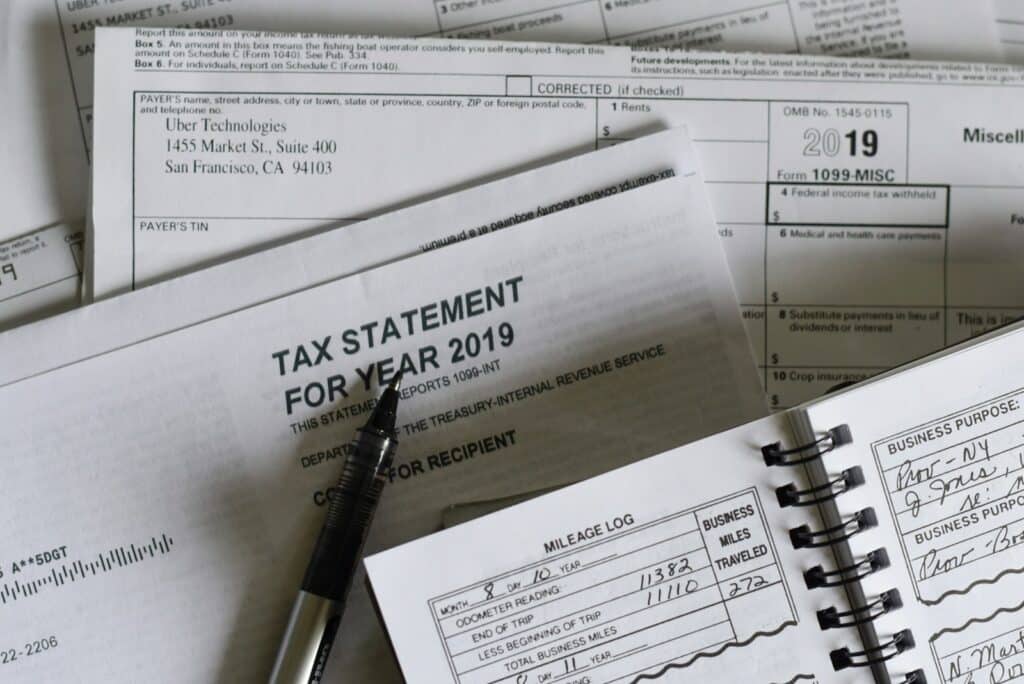Tax planning is more than just filing your taxes annually—it’s a strategic approach to managing your finances, reducing liabilities, and achieving financial stability. For small business owners, effective tax planning can save their clients millions, making the difference between thriving and merely surviving in today’s competitive marketplace. Financial professionals can greatly benefit from using advanced tax planning tools to enhance their business capabilities and improve their tax projection processes.
In this guide, we’ll explore the fundamentals of tax planning, its benefits, and how incorporating the right strategies, tools, and services can help you save significant money while staying compliant with tax laws.

What is Tax Planning?
At its core, tax planning is the process of analyzing your financial situation to minimize tax expenses while staying compliant with the complex U.S. tax code. It involves making informed decisions about investments, expenses, and income structures to reduce your tax bill and maximize savings.
Effective tax planning often includes creating personalized tax plans that utilize integrated tax strategies tailored to individual client situations.
For small business owners, this proactive approach helps you:
Lower your tax liabilities.
Allocate resources effectively.
Achieve financial confidence and stability.
The Benefits of Tax Planning for Small Businesses
Tax planning goes beyond monetary savings—it adds strategic value to your business by creating efficient and customized tax plans. Here’s why every small business owner should prioritize it:
Significant Tax Savings: Smart tax planning strategies can minimize your tax bill by identifying all available deductions and credits.
Boost Revenue and Growth: By saving on taxes, you can redirect those funds into your business for expansion, new hires, or innovative projects.
Ensure Compliance: Stay on top of the latest tax laws and regulations, avoiding penalties and audits.
Gain a Clear Financial Overview: Tax planning offers insights into your finances, enabling better decision-making and long-term growth strategies.

Tax Planning for Different Business Entities
Different entities come with unique tax requirements, so personalized plans are critical for maximizing results. Here’s how tax planning varies across business structures:
Sole Proprietorships and Partnerships: Focus on deductions for operational expenses and self-employment tax strategies.
Corporations: Benefit from corporate tax rates and strategies like profit sharing.
LLCs: Flexibility in choosing taxation types allows optimized planning.
Nonprofits: Leverage tax-exempt status while addressing operational needs.
By working with tax professionals, business owners can understand these nuances and tailor strategies to fit their specific needs within the complex U.S. tax code.

Essential Tax Planning Strategies for Small Businesses
To make the most of tax planning, consider these proven strategies for creating efficient and customized tax plans:
1. Manage Income and Timing
Defer or accelerate income depending on your current and future tax brackets to achieve lower total tax payments.
2. Maximize Deductions
Take advantage of deductions for business expenses, including office supplies, software, equipment, and travel.
3. Use Tax Credits
Tax credits can significantly reduce your liability. Examples include credits for research and development or green energy investments.
4. Leverage Retirement Plans
Invest in retirement plans like 401(k)s or SEP IRAs to lower taxable income while saving for the future.
5. Utilize Planning Tools
Financial professionals can use tax planning software to model multiple scenarios, perform real-time analyses, and identify opportunities for savings.
Tax Planning Software: A Game-Changer for Small Businesses
Gone are the days of manually crunching numbers. Tax planning software is revolutionizing the way small businesses manage their taxes. Here’s why it’s worth considering:
Streamlined Workflow: Automate complex calculations and generate accurate projections.
Real-Time Updates: Stay informed of the latest tax laws and insights with timely notifications.
Data Synchronization: Easily integrate data from bookkeeping and tax preparation software like QuickBooks.
Personalized Recommendations: Provide clients with detailed tax planning proposals tailored to their needs.
Error Reduction: Minimize human mistakes with automated systems.
Investing in tax planning tools not only saves time but also boosts efficiency, ensuring you provide better services and insights to clients through customized tax plans.

The Role of Certified Tax Planners
While tax planning software is a powerful tool, nothing beats working with certified tax planners. These professionals specialize in reducing clients’ tax liabilities and are equipped with the expertise to:
Interpret the U.S. tax code and regulations.
Identify overlooked deductions and credits.
Craft tailored strategies to maximize savings.
Prepare for audits and avoid compliance risks.
Collaborating with a tax expert ensures your business is positioned for success, even during changing tax policies.
Sync Your Bookkeeping for Seamless Tax Preparation
Accurate bookkeeping is the foundation of tax planning. When your financial data is properly organized, planning becomes far more effective. Some of the benefits include:
Error-Free Data: Reduce mistakes with synchronized systems that seamlessly transfer data between bookkeeping and tax tools.
Time Savings: Import client data quickly to avoid duplicating effort.
Simplified Tax Filing: Organized records make tax return preparation faster and less stressful.

Proactive Tax Planning for Maximum Impact
Tax planning isn’t just about reacting to your current financial situation—it’s about proactively looking ahead. By staying informed of regulatory changes, you can:
Provide clients with updated advice on new opportunities for savings.
Plan for major expenses to reduce taxable income.
Build confidence in your business strategy, knowing it’s backed by professional insights.

Reporting for Accounting Clients
Tax Planner Pro’s reporting module is a game-changer for accounting professionals, offering a clear and robust deliverable for their clients. These reports serve as the foundation for planning meetings and engagements, providing clients with valuable insights to make informed decisions about their tax strategy. With Tax Planner Pro, accounting professionals can generate customized reports that include:
Tax Projections and Analysis: Detailed forecasts that help clients understand their future tax liabilities.
Tax Savings Opportunities and Recommendations: Identifying potential areas where clients can save on taxes.
Financial Data and Trends: Comprehensive data that highlights financial performance and trends over time.
Compliance and Regulatory Information: Ensuring clients stay compliant with the latest tax laws and regulations.
These reports can be easily shared with clients, helping to build trust and demonstrate the value of the accounting professional’s services. By providing clear and actionable insights, accounting professionals can position themselves as indispensable advisors, guiding their clients towards significant tax savings and financial success.

Running “What Ifs” with The Simulator
Tax Planner Pro’s Simulator is an invaluable tool for accounting professionals, allowing them to run “what if” scenarios with clients. This interactive feature enables the exploration of different tax strategies and their potential impact on the client’s tax bill. By modeling multiple scenarios, clients can see the potential benefits of various tax planning approaches, making it easier for them to make informed decisions about their financial life.
With the Simulator, accounting professionals can:
Model Different Tax Scenarios and Strategies: Explore various tax planning options to find the most beneficial approach.
Analyze the Impact of Changes in Tax Laws and Regulations: Stay ahead of regulatory changes and adjust strategies accordingly.
Identify Potential Tax Savings Opportunities: Highlight areas where clients can reduce their tax liabilities.
Provide Clients with a Clear Understanding of Their Tax Obligations and Options: Ensure clients are well-informed and confident in their tax strategies.
By using the Simulator, accounting professionals can help clients make informed decisions about their tax strategy, ultimately reducing their tax bill and improving their overall financial well-being. This proactive approach not only enhances client satisfaction but also strengthens the client-advisor relationship.

Building Trust with Clients
Building trust with clients is paramount for accounting professionals, and Tax Planner Pro can play a crucial role in this process. By providing clients with accurate and timely tax projections, analysis, and recommendations, accounting professionals can demonstrate their expertise and commitment to helping clients achieve their financial goals.
With Tax Planner Pro, accounting professionals can:
Provide Clients with Personalized Tax Planning and Advice: Tailor strategies to meet the unique needs of each client.
Help Clients Understand Their Tax Obligations and Options: Offer clear explanations and guidance on tax matters.
Identify Potential Tax Savings Opportunities and Recommend Strategies to Reduce Their Tax Bill: Proactively seek out ways to save clients money.
Offer Ongoing Support and Guidance to Help Clients Achieve Their Financial Goals: Maintain a continuous advisory relationship to ensure long-term success.
By using Tax Planner Pro, accounting professionals can build trust with clients, establish themselves as trusted advisors, and grow their practice through referrals and repeat business. This trust is built on a foundation of accurate information, personalized service, and a genuine commitment to the client’s financial well-being.
How to Get Started with Tax Planning
Here are some actionable steps to master tax planning for your small business:
Review and Analyze: Assess your financial records for potential opportunities and risks.
Use Professional Services: Team up with certified tax planners or accountants for expert advice. These services are particularly beneficial for financial professionals looking to enhance their business capabilities.
Leverage Technology: Adopt tax planning software to streamline and enhance your workflow.
Stay Updated: Keep track of changes in tax regulations to stay ahead and remain compliant.
Act and Monitor: Implement strategies, monitor results, and adjust them as needed for optimal performance.

Take Control of Your Finances Today
Tax planning isn’t just a task—it’s an ongoing strategy for financial success. By leveraging expert tools, strategies, and help from professionals, small business owners can reduce tax liabilities, save time, and achieve their financial goals with confidence.
If you’re ready to simplify the process and save money, start using a professional tax planner today. Contact a certified expert or try advanced tax planning software to take the next step toward smarter financial management.
Resources
Here are some valuable resources to help you get started with effective tax planning and financial management:
IRS Small Business & Self-Employed Tax Center – Access official guidance, forms, and tools tailored for small businesses and self-employed individuals.
National Association of Tax Professionals (NATP) – Find trusted tax professionals and access educational resources to stay informed about tax strategies.
TurboTax for Small Business – Explore software designed to simplify tax filing and planning for small business owners.
QuickBooks Accounting Software – Manage your finances efficiently with top-rated accounting tools that integrate tax planning features.
Tax Foundation – Stay updated on the latest tax policy research and trends that may impact your business.
Your Local Small Business Development Center (SBDC) – Get personalized guidance and support from experts in your area to improve your financial strategies.
By utilizing these resources, you can gain the knowledge and tools necessary to manage taxes more effectively and strengthen your financial foundation.

